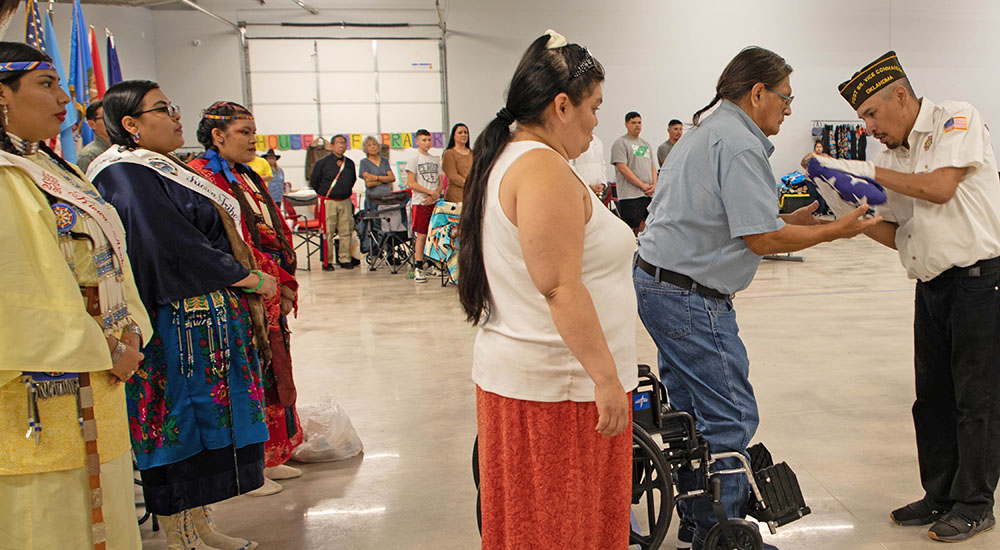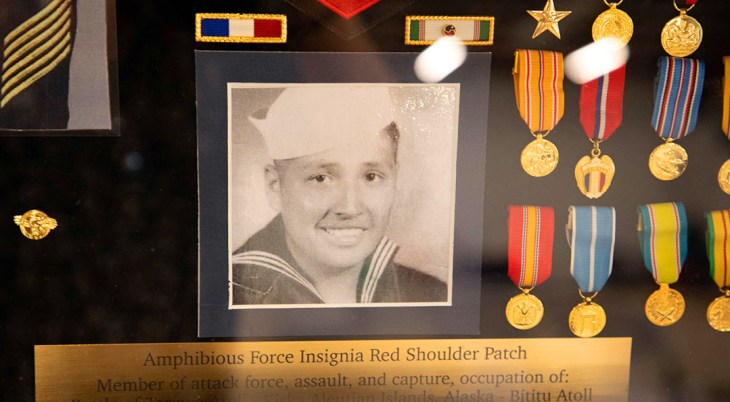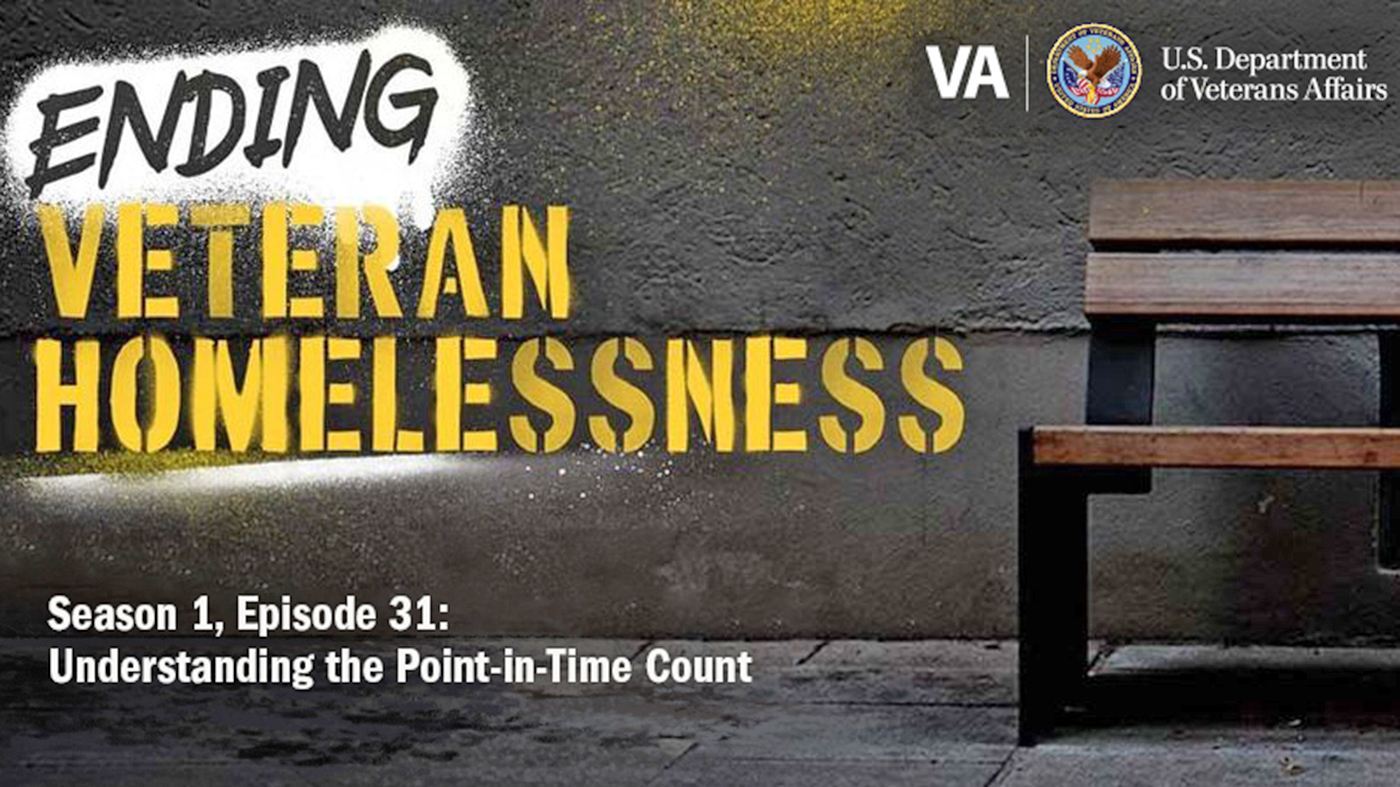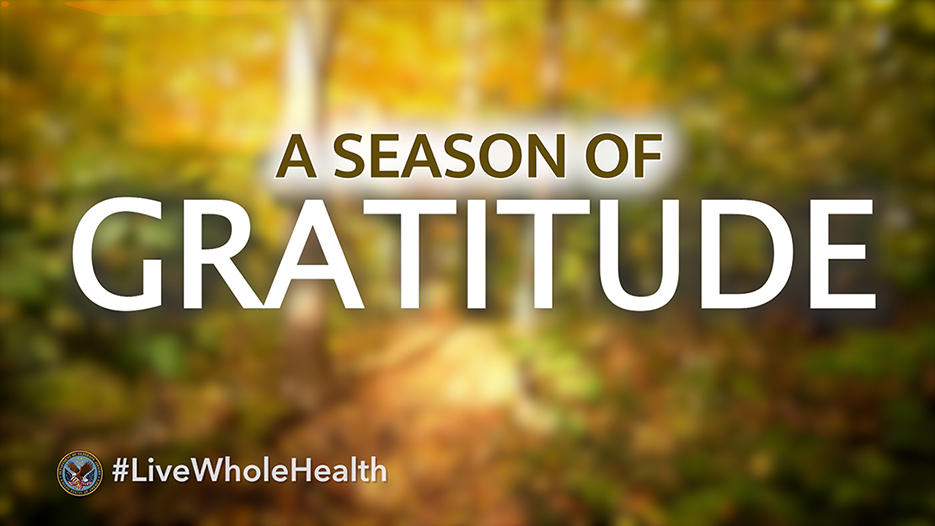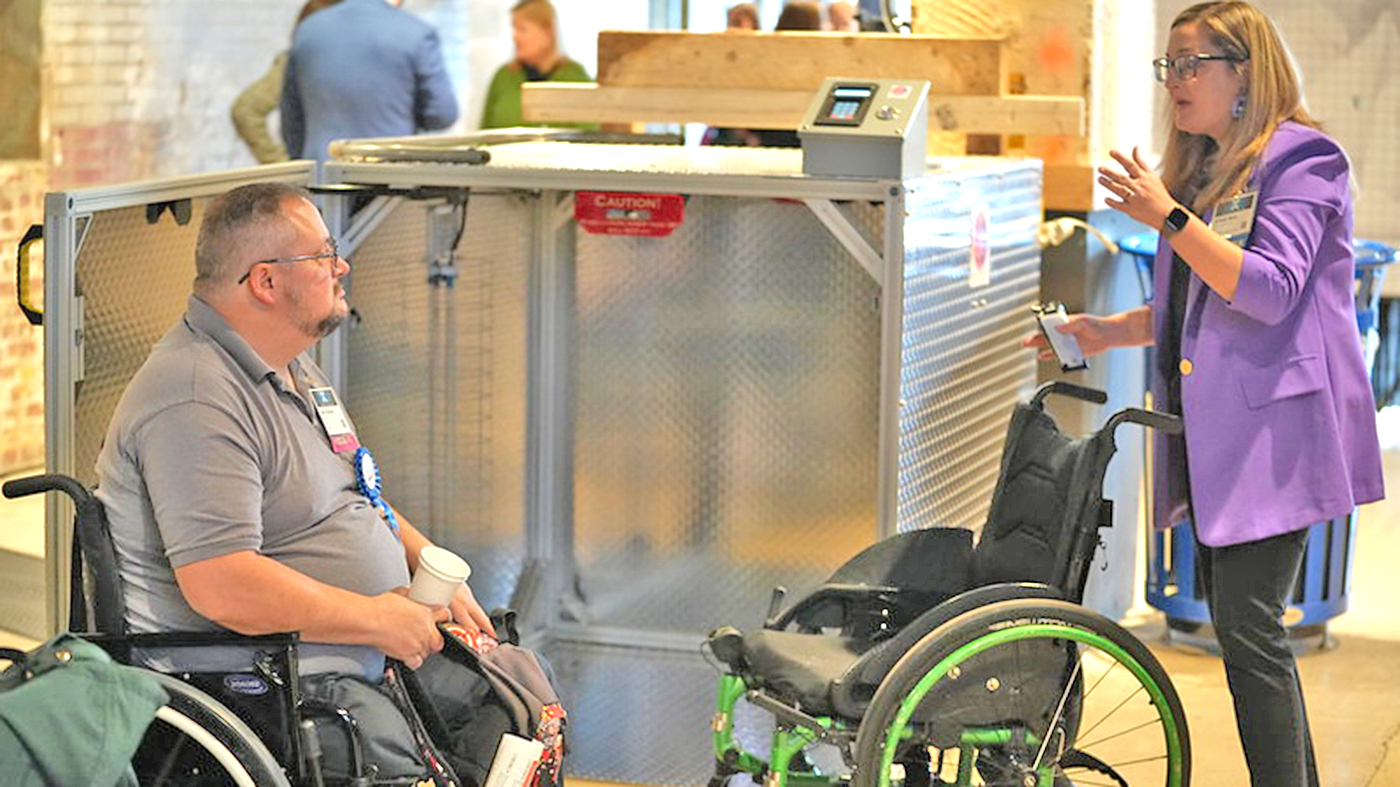Oklahoma City VA is bringing health care resources to remote Tribal areas to ensure Veterans and their families in specific local communities are briefed on the PACT Act, a new law that expands VA health care and benefits for Veterans exposed to burn pits and other toxic substances.
Oklahoma City VA knows how difficult it is for some Veterans to travel, drive into the “big city” and navigate the VA systems, or to know the digital path for online services. It can be overwhelming for some Veterans, especially those in the elderly population.
Pictured above, a passing of the flag is presented at the PACT Act event.
“My father died in 1990, and he was a proud Kiowa Tribe member; WWII, Korean War and Vietnam War hero,” said Lin Tsoodle, Kiowa Tribe member. “My father’s life was a gift to us so that myself and other Veterans could have the benefits we have today.”
“Sign up and see what you are entitled to.”
“I didn’t know about my VA benefits until someone took my hand and walked me through the VA process. Don’t feel guilty or that you are not worthy of the benefits you are given. All anyone asks is that you sign up and see what you are entitled to. It doesn’t take very long and, down the road when you are older, it can make a huge difference and positive impact on your quality of life,” Tsoodle added.
At the Seminole Nation PACT Act event, the organizers said each location will come with their own set of unique challenges. “When they see all the staff in person at these outreach events, it is so much more personable for our Tribal participants. Sometimes we have to build relationships and rebuild that trust,” said Mary Culley, Office of Tribal Government Relations specialist.
One of the areas that is in desperate need to have more representation and focused communication efforts are Veterans’ widows.
“Many of our widow population do not know they may be eligible for their widow compensation. Just because your Veteran is no longer with us, that doesn’t mean you are not deserving of your spouse’s benefits,” Culley said. “The only way to find out is to come out and ask the questions to the right people. At these Tribal outreach events, we are bringing the experts to investigate each individual case and figure out exactly what benefits you are entitled to and deserve.”
According to Tsoodle, it might be difficult for some Tribal members to ask or seek help from VA, but he has advice for those fellow Tribal members who may be skeptical: “Be open to the help that VA provides to us. Don’t be shy and don’t feel guilty to receive help. So many have sacrificed so much so that we can finally get the medical care and benefits we have earned and deserve. My father’s generation never had that chance, so don’t waste it.”
Topics in this story
More Stories
William Snow, senior program specialist at HUD, explains how the Point-in-Time Count provides valuable data on Veteran homelessness.
Gratitude is a light that shines through life’s ups and downs. Embrace gratitude this holiday season in just five minutes for this week's #LiveWholeHealth practice.
VICK, a wheelchair-cleaning kiosk, is transforming wheelchair sanitation in VA hospitals with UVC technology.

